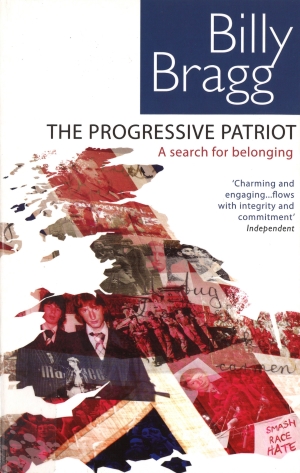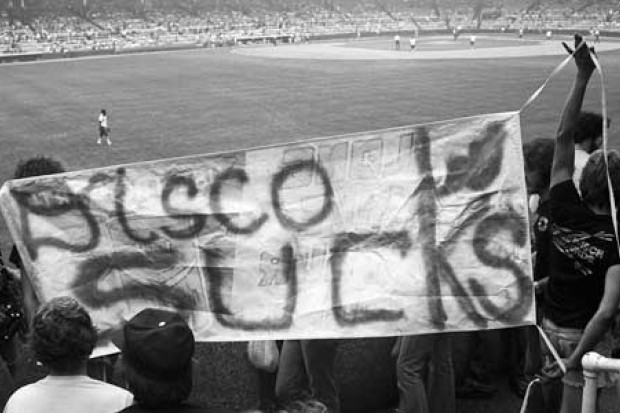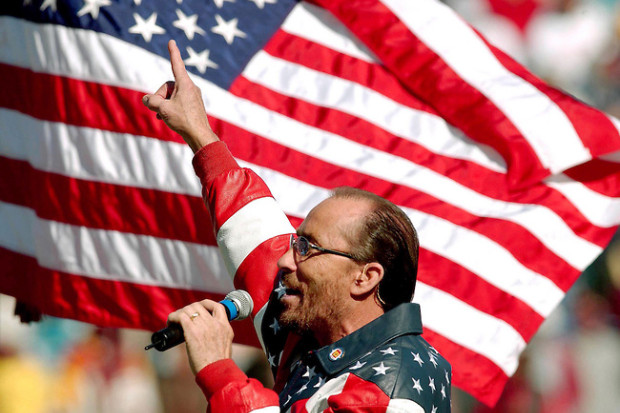
Past, Present and Future of an English Patriot
The roots of singer-songwriter Billy Bragg, as given in his new book The Progressive Patriot, lie deep in rural East Anglia, his male ancestors mostly being farm labourers. He doesn’t know much about them, but he would like to believe that during the English Civil War those who were around would have served in the New Model Army. Braggs, he hopes, were always progressive dissidents struggling to make England a better place.
By the early nineteenth century, when they first appear in written records, his Bragg predecessors were living in the Essex village of Rattlesden. As members of the local Baptist congregation they defied the local landlord and subscribed funds to build the chapel. Within sixty years though, the Braggs, along with so many of the Essex rural proletariat, had moved to London’s East End, settling in Barking, where great-grandfather Frederick worked in the Beckton gas works. In 1889, he was one of the strikers who forced the owners to switch from two shifts of twelve hours each day, to three of eight hours with no loss of pay, a staggering victory. His son, William, Bragg’s grandfather, married May Austin, who also came from a militant family.
As the twentieth century rolled forward, another family trait showed itself: a preparedness to serve in war. Grandfather William attempted to enlist in 1915, but was rejected because of a spinal disability that had killed his twin brother. He did important war work, however, as a metal smelter. His son, Dennis, the author’s father, was a teenage ARP Warden during the Blitz and a tank driver in the 43rd Royal Tank Regiment in India from 1943 to 1947. Following de-mobilisation, he married Marie, granddaughter of low-caste Italian immigrants, and in 1957 along came their son.
Billy, as he was named, grew up in the Barking street where three generations of Braggs had already lived. Bragg is strangely reticent about his parents, his relationship with them and the atmosphere in the home. He certainly doesn’t tell us if he was miserable, so we are left to assume he wasn’t. What he does tell us is that as a child he had powerful imagination, which sometimes made his life difficult. For instance, he got a paper round which regularly took him past the site of Uphall Camp, the vast Iron Age fort around and on which Barking was built. On damp winter evenings, when the mist curled in from the Thames, the young Billy was always terrified when he walked past, fearing that the spirits of Uphall’s iron-age occupants were about to loom out of the murk. In the adult Bragg’s life this sense of an imaginative connection to the distant past would continue to be an important preoccupation.
The young Bragg’s musical life consisted either of singsongs around the piano when ‘Roll out the barrel’ and other classics from the East End musical hall repertoire were belted out, or what he heard on the radio. There was no record player in the home. But his parents did notice that he had a heightened responsiveness to music and for Christmas, 1969, they gave him a Fidelity Braemar reel-to-reel tape recorder. As it turned out, this would be the saving of the young Bragg as well as the gateway to his future life as a musician.
At the time he got the tape recorder, Billy was at secondary school and unhappy. He was bullied badly. Now, as troubled adolescents have always done, he turned inwards. He began recording songs obsessively and then organising the material according to his own criteria. This gave him control – or at least the illusion of it – which he didn’t have in the world. At this point, aged thirteen, fourteen, he had no inclination to play; he was just an anorak, who recorded and catalogued songs and, in the process, though it was undirected and not thought through, acquired a musical education of sorts.
His tastes, initially, were eclectic and popular. Then came the first of those key life experiences after which nothing is ever the same. On a school trip to Holland, while flirting with some girls, he heard Simon and Garfunkel singing ‘The Boxer’. The song came to represent that moment so totally that subsequently, when he re-encountered it, or thought about it, that lost moment returned and the distance between past and present vanished. A little later, at school assembly, he heard Simon and Garfunkel’s version of ‘Scarborough Fair’. Like ‘The Boxer’ had, the song connected past and present, but in this case it wasn’t his personal past to which the song gave him access, but the collective past, the English past, the lost rural pastoral past of his Bragg ancestors labouring in the flat fields of East Anglia.
In his mid-teens, Bragg finally picked up a guitar and learnt to play. He also left school, got a job as a messenger with a city bank, and played with a group of like-minded friends, mostly Rolling Stones covers. Then he heard the Essex band Eddie and the Hotrods who led him to the London mod scene and The Jam, who in turn led him to The Clash. He saw them for the first time at the Rainbow Theatre in Finsbury Park, on 9 May 1977 at a concert that was part of their White Riot Tour. He was transformed by what he saw. Here was the sort of music he wanted to make, raw, politically alert and unpretentious. Some of the audience rioted: Bragg, more sensibly, decided to change his life. He quit his job, cut his hair and formed Riff Riff. (No wonder he remembers that he sat in Row K, seat 37.)
A year on, and now a dedicated fan, Bragg was at the Rock Against Racism Carnival Against the Nazis, in Victoria Park, Hackney, at which The Clash played what was perhaps their best ever set. Watching from the crowd, Bragg had another life-changing epiphany. What RAR and The Clash were about, he realised, was good old-fashioned collective action of a kind his ancestors would have applauded, except this time the target wasn’t the bosses but the racists. This, he realised, was where he belonged, fighting with others against the forces of reaction, and at that moment the musical activist we know today was finally born.
Sadly, following those heady days, the musicians who saw off the NF lost their way, most (like the trailblazers, The Clash) being destroyed by the contradiction between their rock lifestyles and their beliefs, plus their failure to make common cause with other progressive groups over the following decades.
Bragg, conspicuously, survived, and the key to that he believes was that he did make common cause, first with the Miners during their strike in 1983, and then with Red Wedge, the musical collective that campaigned to get Neil Kinnock and the Labour Party elected. Bragg remains engaged: his charity, Jail Guitar Doors, puts musical instruments into British prisons, and he is still at the front of the struggle against racism, especially now that it has assumed for him a personal dimension.
In the local council elections of May 2006, the people of Barking and Dagenham, the people he grew up among (though he doesn’t live among them anymore, he lives in Dorset now), elected twelve British National Party candidates. This made the BNP the official opposition in the council chamber, and made Barking and Dagenham, according to the press, the race hate capital of Britain. Bragg is bewildered and aggrieved by this development. Barking was always Labour. What has gone wrong? He thinks it might have something to do with consumerism and the atomisation of the family, but he isn’t certain. He has a programme for the future, however, if this latest outbreak of working-class racism is to be defeated, and he has produced The Progressive Patriot to put his case across.
The plan proposed by Bragg has four clear strands. One, St George’s flag and other symbols of English identity need to be appropriated from the right by the left. Two, the English need their own Parliament. Three, the forces of progress must use culture to catalyse opposition to the forces of reaction including Islamist extremists (but not in a racist way, naturally). Four, ID cards (inevitable he believes) can only be accepted if balanced by a Declaration of Rights to safeguard the liberties and rights of every citizen.
Politically engaged rock celebrities are not unknown. Few, however, could pull off what Bragg has managed here, a work that combines autobiography with polemic while avoiding piety. As a literary artifact the book is imperfect. He’s brilliant on his own life, less good on what is out of his experience, like the English Civil War. But it’s impossible not to admire his ambition to make ‘Jerusalem, In England’s green and pleasant land.’ Is there another committed musician out there who could persuade like he does? I certainly can’t think of one.
Billy Bragg, The Progressive Patriot – A Search for Belonging
London, Bantam Press, 2006, 296pp
Published on 1 May 2007











